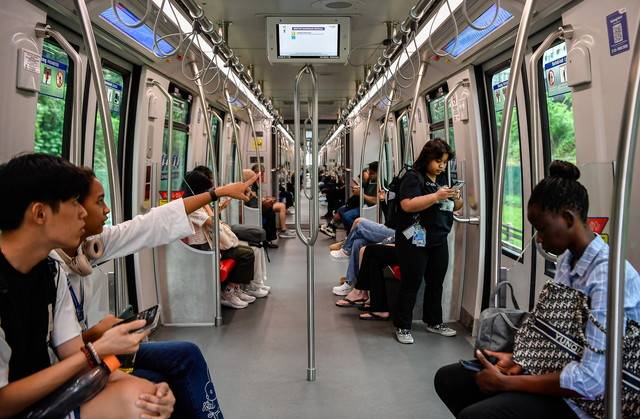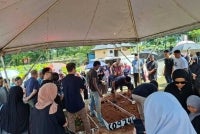Cities driving economic growth and social transformation
Malaysia’s rapid urban transition reflected the country's impressive growth, aligning with the swift urbanisation trends across Asia.

From a modest 23 per cent urbanisation rate in 1970 to nearly 80 per cent today, Malaysia’s cities have transformed into the driving force behind the nation’s economic growth.
In a recent interview with Sinar Daily, Think City Managing Director Datuk Hamdan Abdul Majeed stressed that while urbanisation has brought prosperity, the next crucial challenge is ensuring cities are not only efficient but also sustainable and livable. This question is explored further in the continuation of a special report on Malaysia’s urban transformation.
SHAH ALAM - Cities are no longer just clusters of buildings, they have become the lifeblood of nations, driving economic progress, reducing poverty and shaping futures.
Think City managing director Datuk Hamdan Abdul Majeed said from a modest 23 per cent urbanisation rate in 1970 to nearly 80 per cent today, cities have emerged as engines of economic growth, contributing to two-thirds of the nation’s gross domestic product (GDP).
"In 1970, only one in four Malaysians lived in urban areas, amounting to a relatively small urban population of a few million.
"Today, over 80 per cent of Malaysians live in cities, with the urban population exceeding 25 million, representing a nearly tenfold increase," he said.
Hamdan said Malaysia’s rapid urban transition reflected the country's impressive growth, aligning with the swift urbanisation trends across Asia.
He emphasised that the shift from rural to urban living, combined with population growth, has profoundly shaped the country's development.
He also highlighted Malaysia's success in reducing poverty rates, preventing the proliferation of slums and ensuring widespread access to essential services such as housing, electricity, clean water and public infrastructure.
"Cities in Malaysia have become critical hubs of economic activity, contributing more than two-thirds of the country's economic growth. The performance of just a few major cities drives this remarkable progress," he added.
Hamdan emphasised that the success highlighted the importance of creating urban environments that were not only efficient but also livable and sustainable.
He said cities must be places of hope, opportunity and community as well as homes where people felt a deep connection and sense of belonging.
Hamdan said recognising the importance of urban transformation, he spearheaded efforts at Khazanah to establish a hybrid organisation that bridges government, private sector and community interests.
"This initiative focuses on reimagining and remaking cities to meet emerging challenges.
"While Malaysia has seen substantial urban growth, the next critical step is ensuring our cities work better, enhancing their efficiency, livability and sustainability," he said.
Hamdan stressed that the vision was clear, it was to build cities that inspired hope and provided opportunities for progress while fostering resilience and sustainability.
He added that this mission served as a rallying cry for collective action, aiming to create urban spaces that people will cherish and celebrate as vibrant, thriving homes.
Download Sinar Daily application.Click Here!















